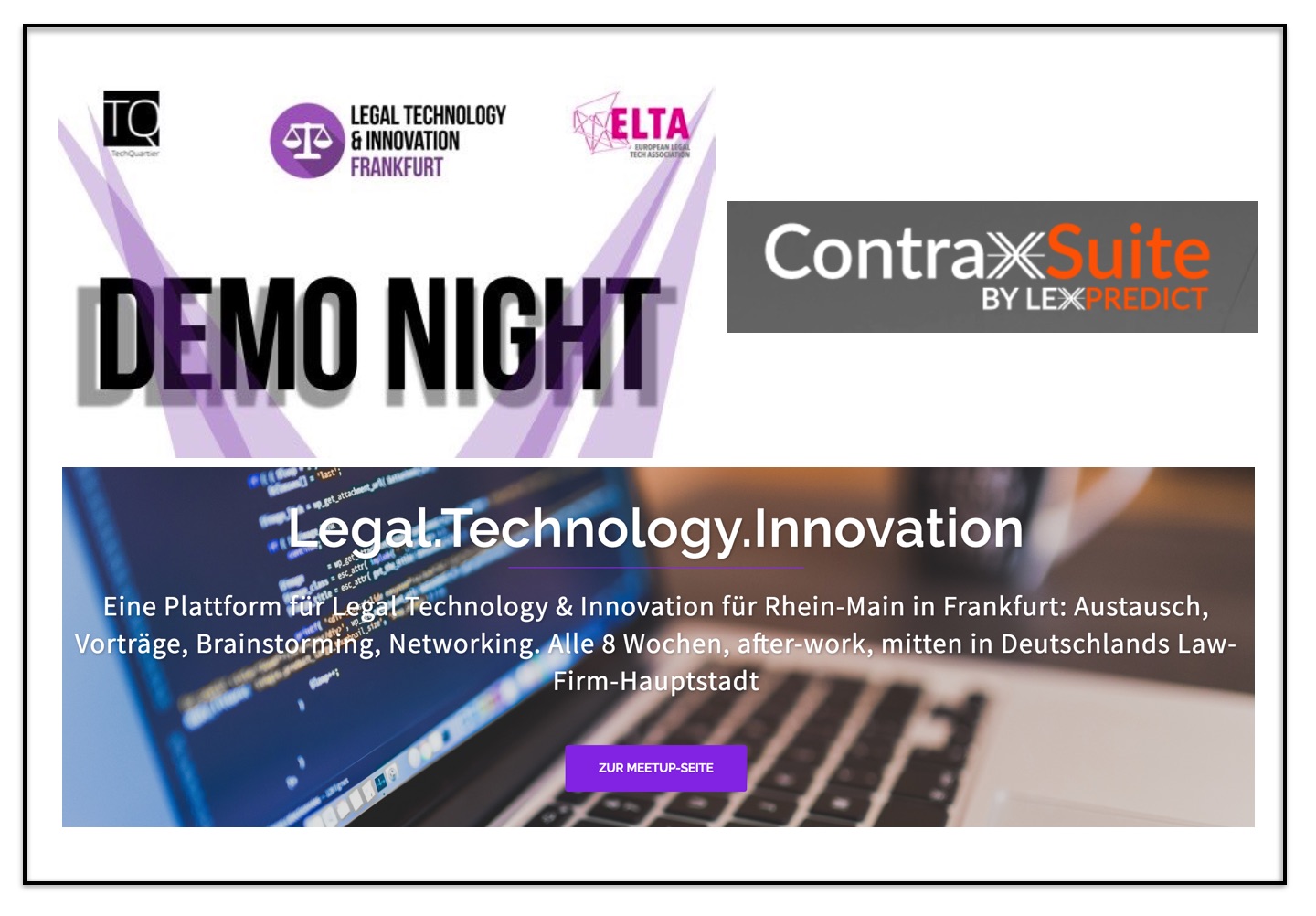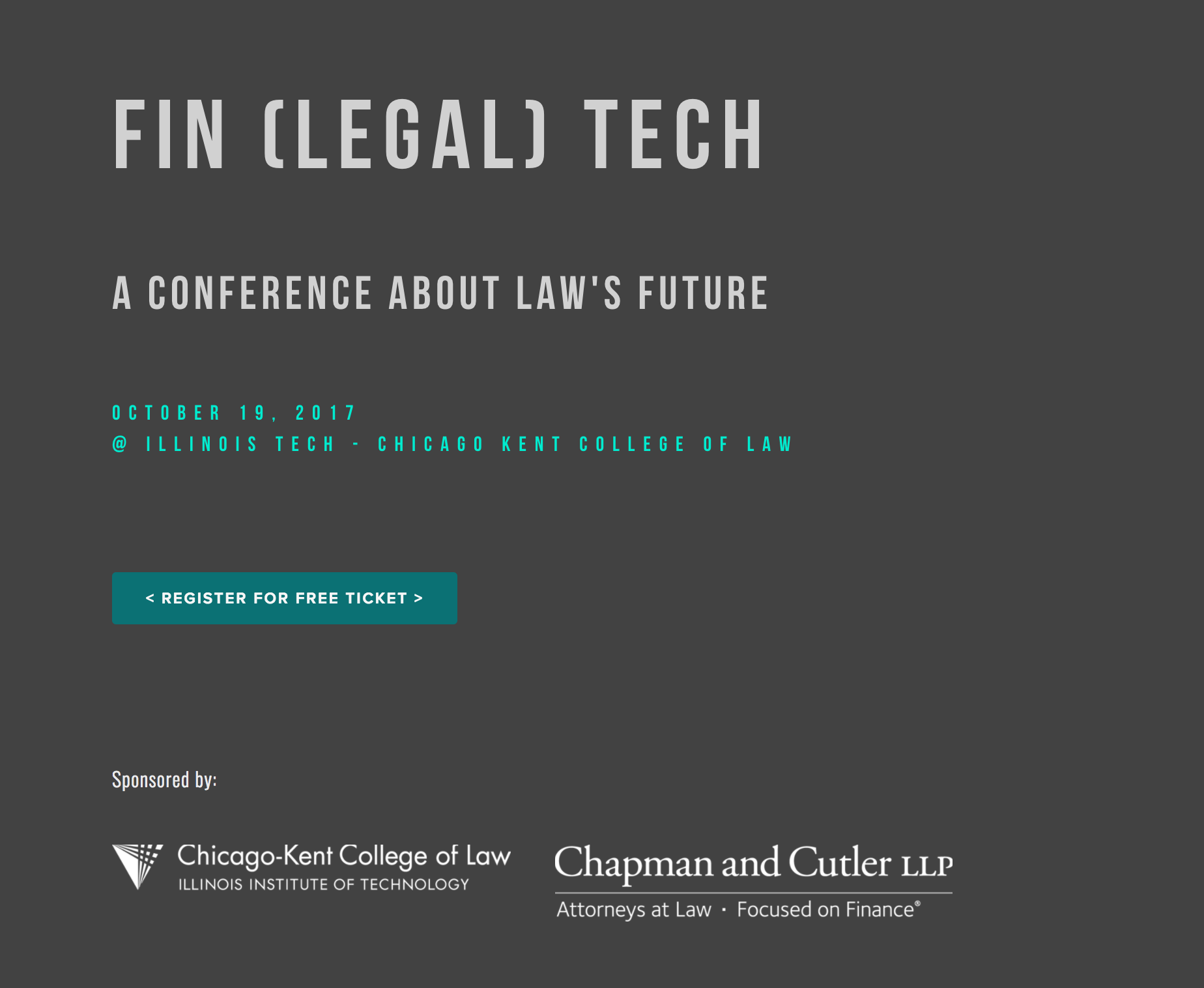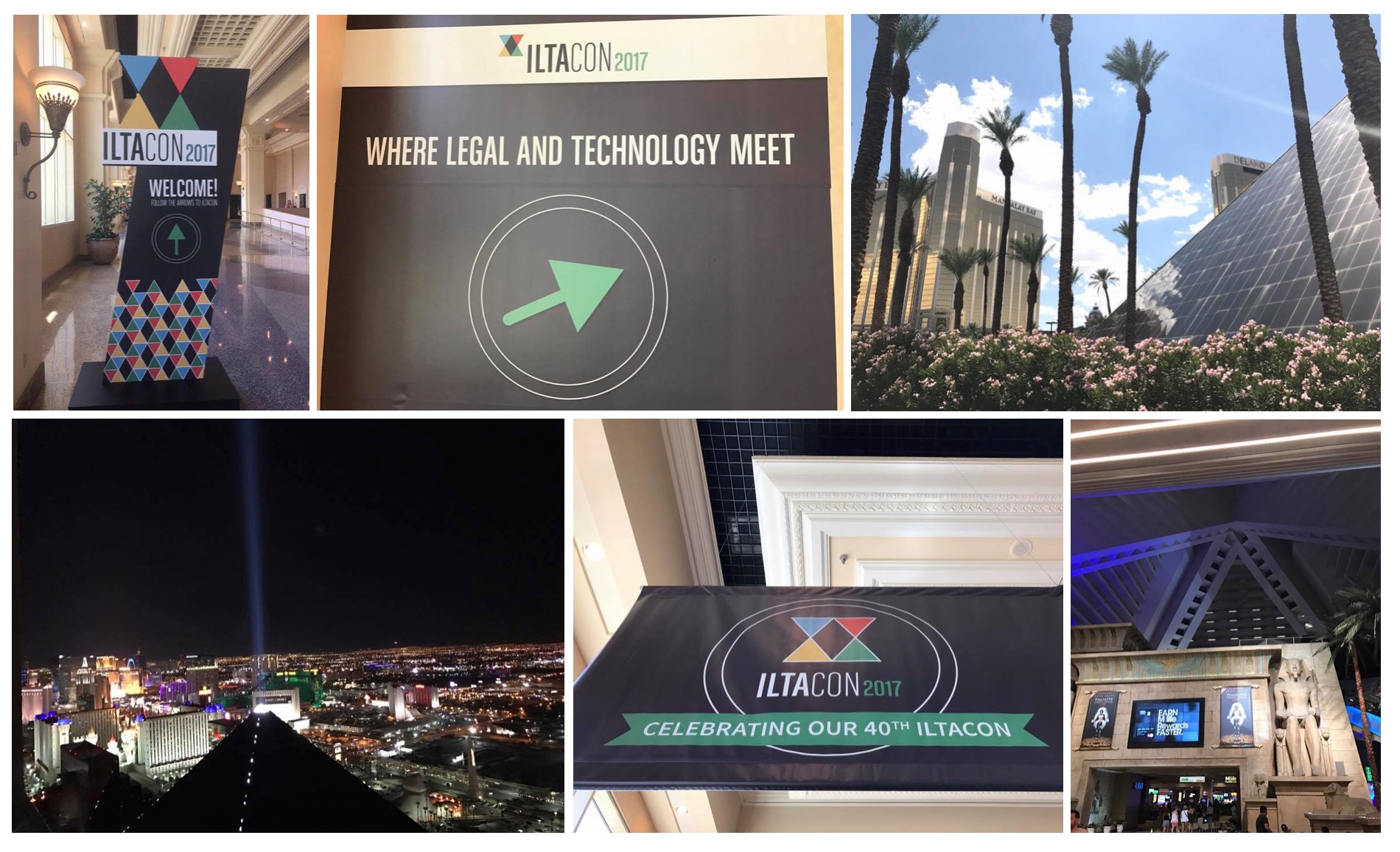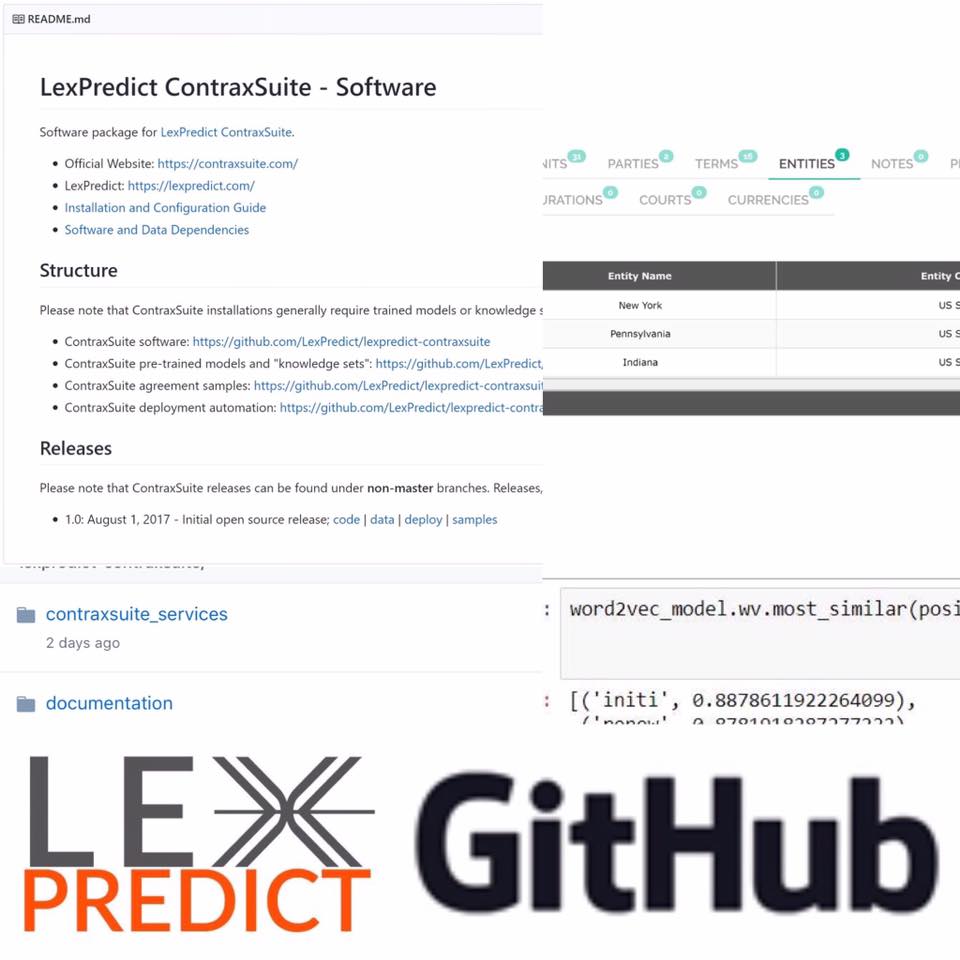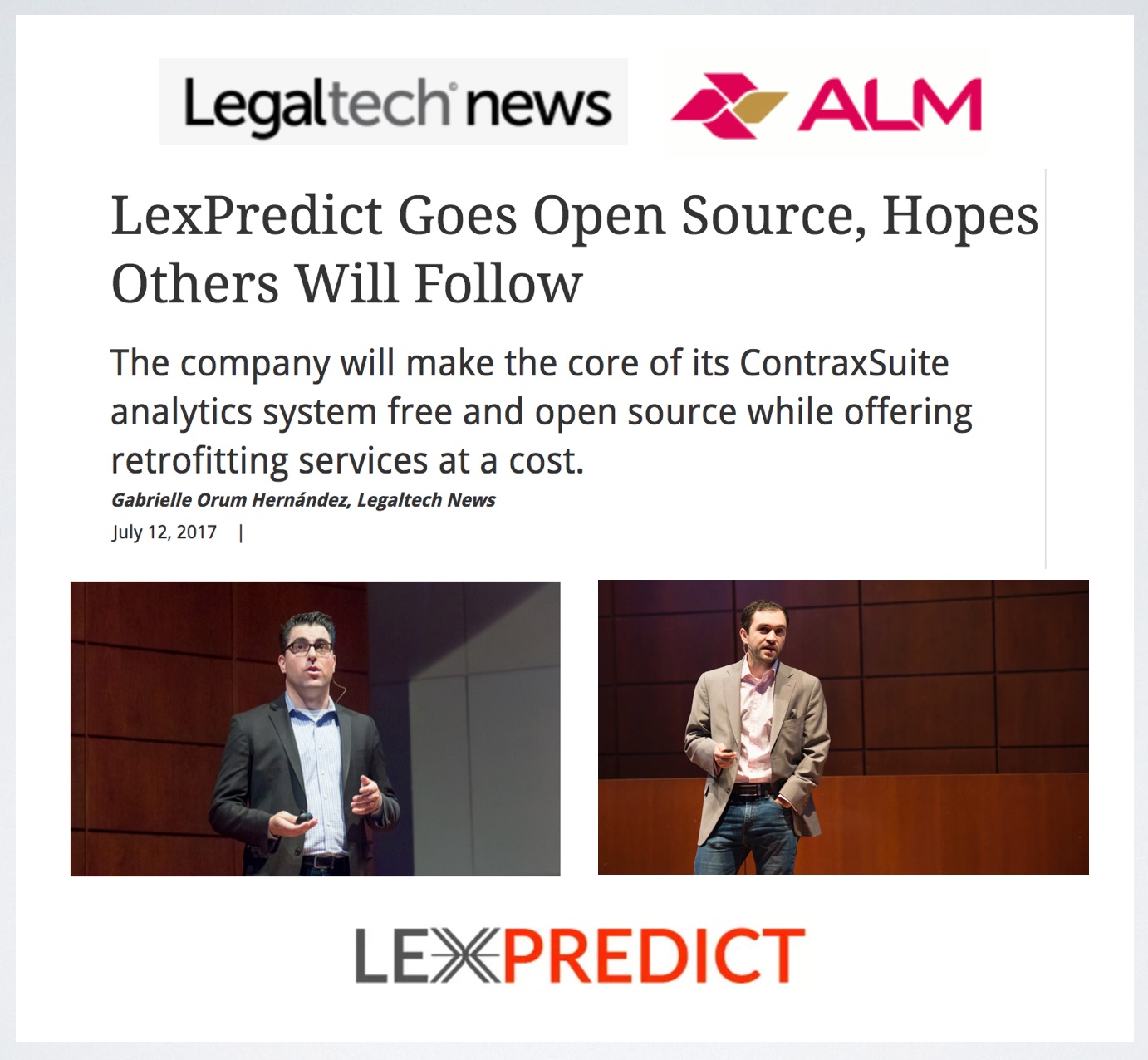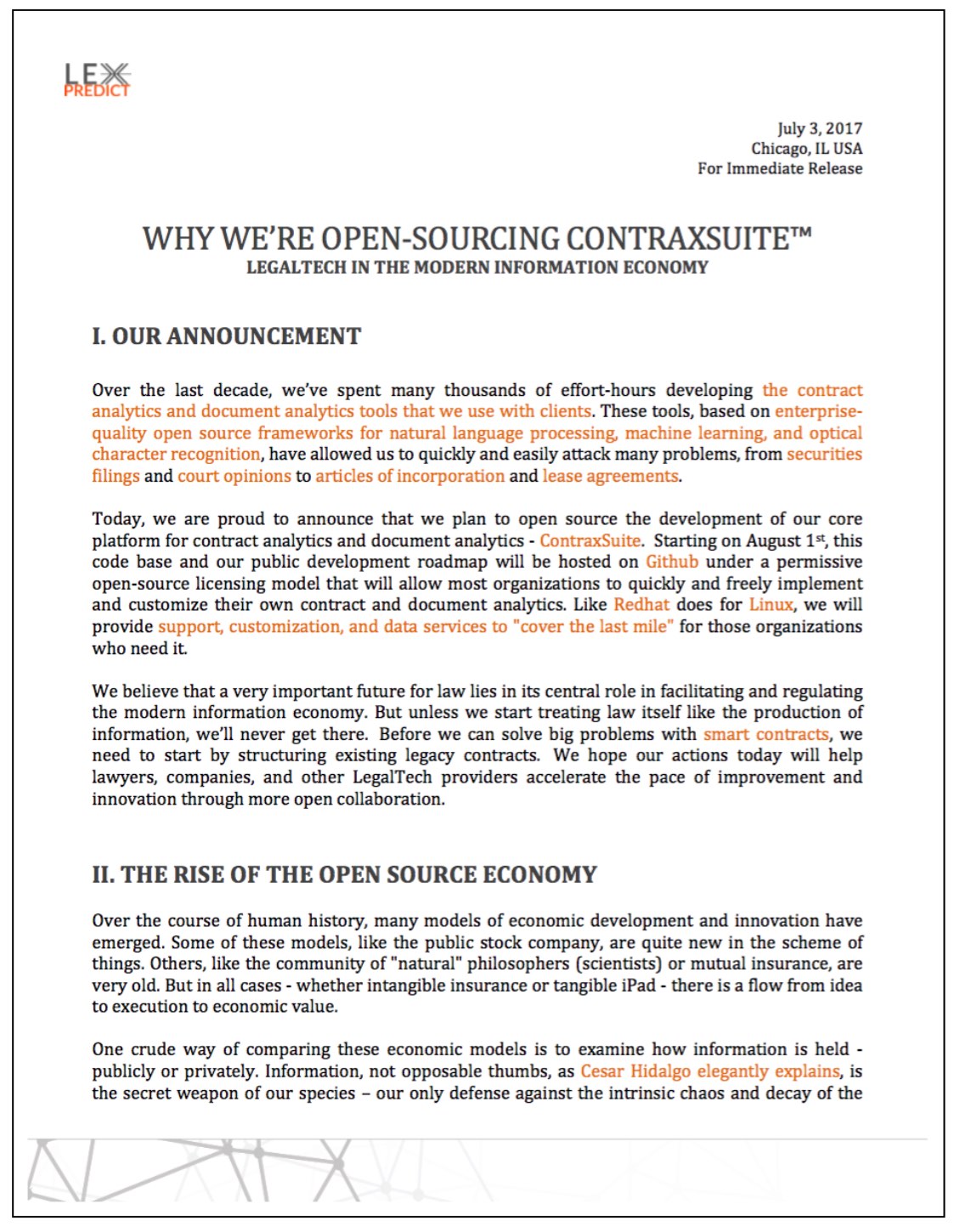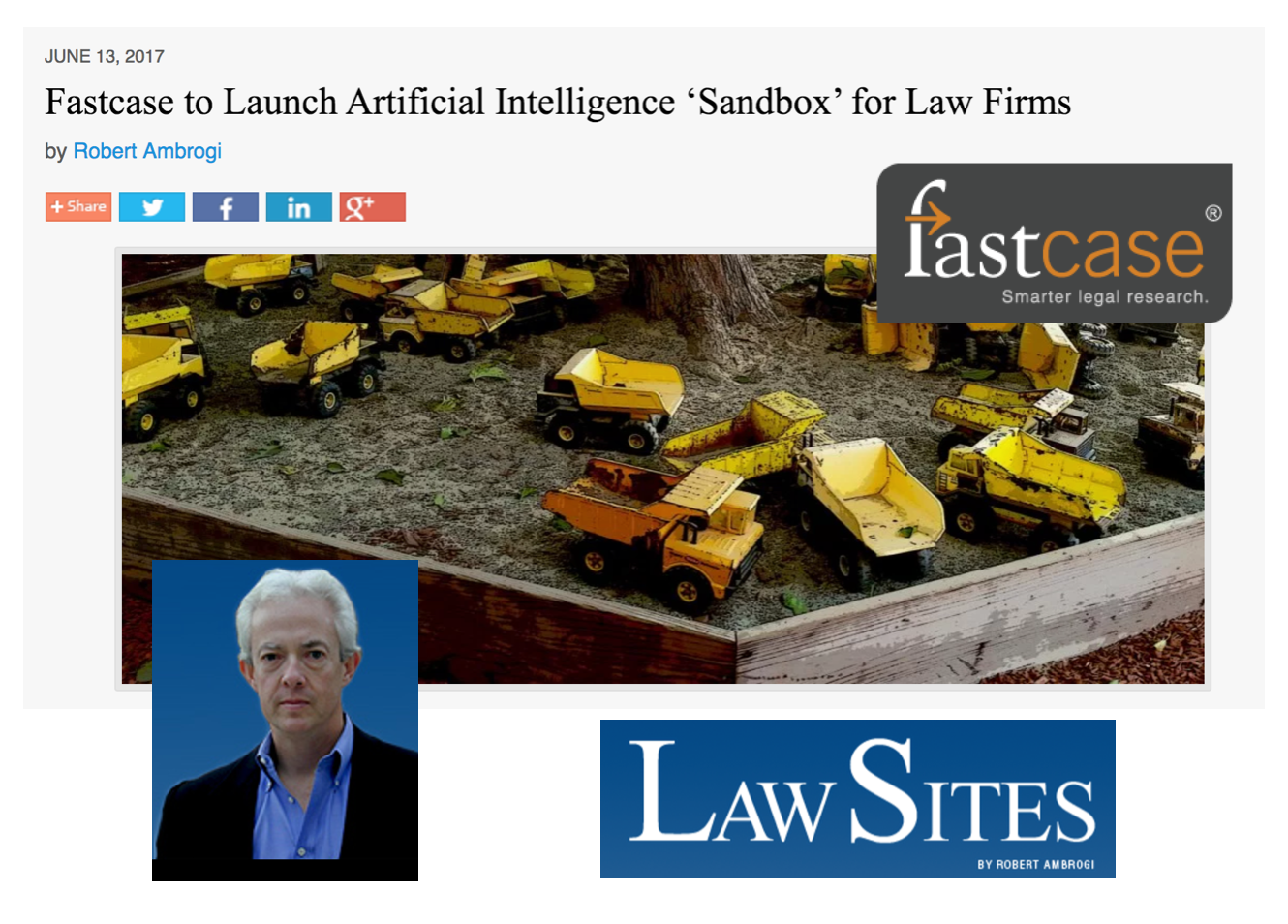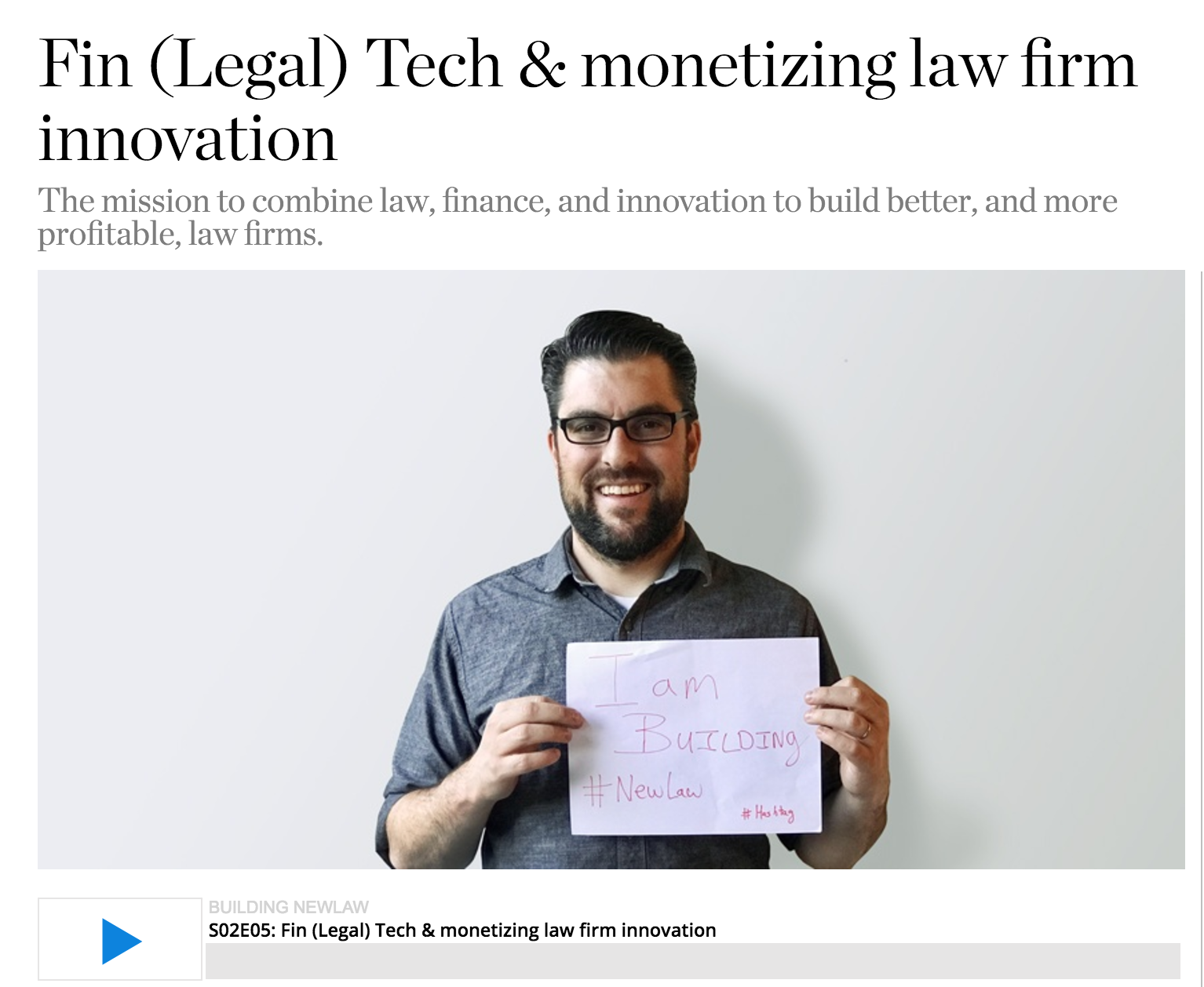Last week we had the pleasure of offering a demo at the Frankfurt Legal Technology and Innovation Meetup – Demo Night. We gave a remote demo of ContraxSuite (our contracts / legal document analytics platform).
Tag: legal analytics
The 2017 Fin Legal Tech Conference @ Illinois Tech – Chicago Kent College of Law (Sign Up for a Free Ticket Today)
The Law Lab at Illinois Tech – Chicago-Kent College of Law presents its second Fin(Legal)Tech Conference on October 19, 2017. Continuing its legacy as an academic leader in legal technology and innovation, Chicago-Kent will bring together a wide-ranging group of industry leaders for a truly unique conference experience. Attendance is FREE but registration is required! Sign up for a FREE Ticket Today.
Thanks to Chapman and Cutler for helping sponsor the event!
Why Open Source Artificial Intelligence in Legal Tech ?
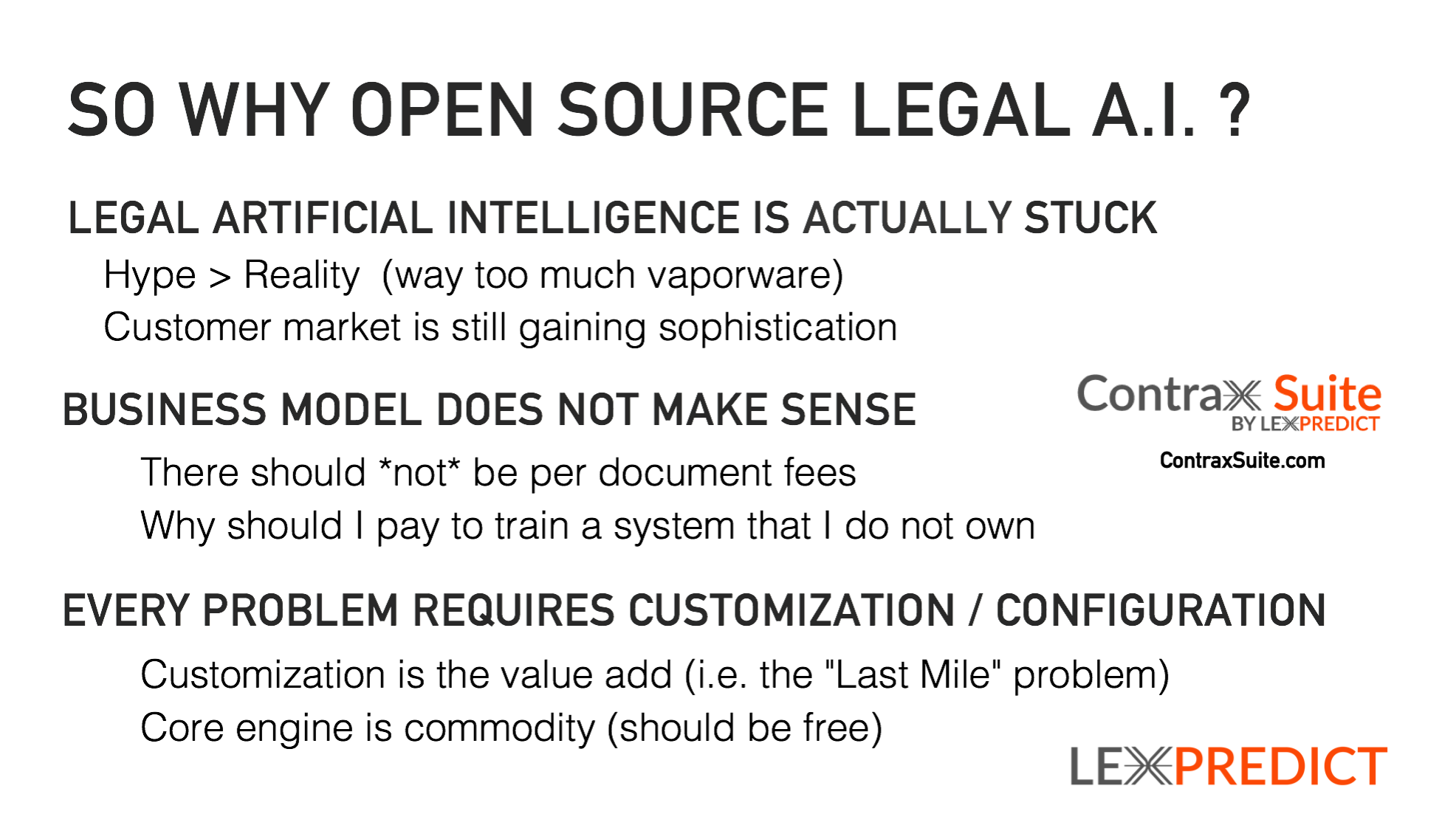
On August 1, we released Contrax Suite (an open source document analytics platform). It is important to note that we have decided upon dual licensing – (1) open source (AGPL) which is pretty hard core copyleft and (2) a more permissive license in specific circumstances. The key for us is to maintain the opensource ecosystem which requires balancing competing interests. We cannot grant the more permissive license to everyone under all conditions or it undermines the entire effort.
That said, we have a real problems in the A.I. + Law community. Some of the claims are outlandish and the business model (at its core) does not really make sense. We think that opensource helps solve for some (perhaps not all) of the adoption issues.
LexPredict Team Releases Open Source Analytics Platform ContraxSuite – Now Live on Github!
Live on Github – the LexPredict Team has open-sourced ContraxSuite 1.0, fundamentally altering the economics of the contract and legal document analytics space – now you can perpetually own a solution with a $0 license and $0 per document fees. But we’re just getting started. Stay tuned over the next few weeks as we release even more documentation and developer examples on Github.
Andrew Baker and Karl Haraldsson Join the LexPredict Team
We are excited to announce the addition of Andrew Baker and Karl Haraldsson to the LexPredict Team. Andrew and Karl will advise LexPredict’s new and existing clients, including Fortune 500 companies and Am Law 200 firms, on strategy, service delivery modernization, data strategy and analytics, and process improvement.
LexPredict Open Sources The 1910 Version of Black’s Law – The World’s Most Well Known Legal Dictionary is Now a Data Object
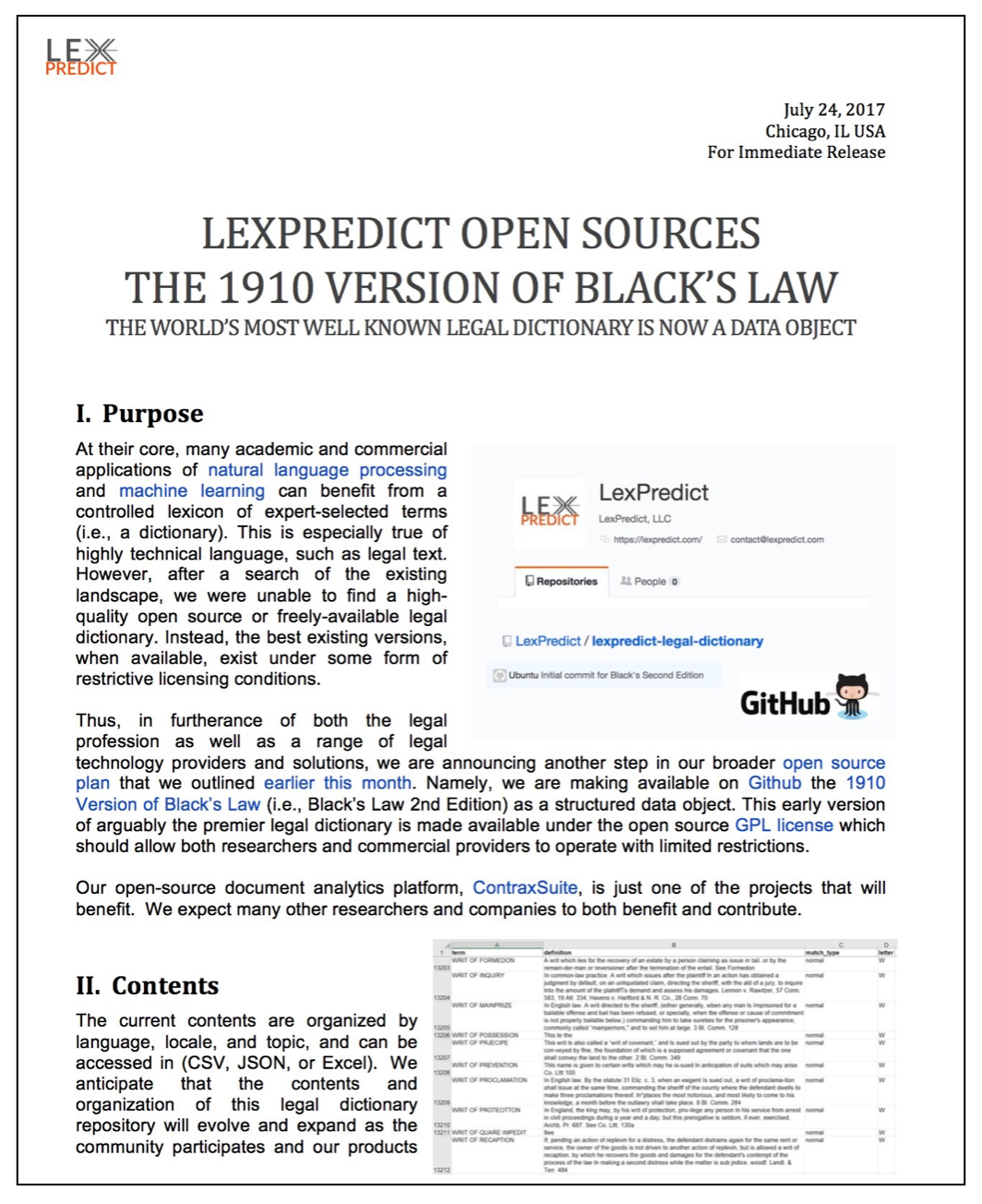
From the release: “At their core, many academic and commercial applications of natural language processing and machine learning can benefit from a controlled lexicon of expert-selected terms (i.e., a dictionary). This is especially true of highly technical language, such as legal text. However, after a search of the existing landscape, we were unable to find a high-quality open source or freely-available legal dictionary. Instead, the best existing versions, when available, exist under some form of restrictive licensing conditions.”
“Thus, in furtherance of both the legal profession as well as a range of legal technology providers and solutions, we are announcing another step in our broader open source plan that we outlined earlier this month. Namely, we are making available on Github the 1910 Version of Black’s Law (i.e., Black’s Law 2nd Edition) as a structured data object. This early version of arguably the premier legal dictionary is made available under the open source GPL license 3.0 which should allow both researchers and commercial providers to operate with limited restrictions.”
Click here to access the GitHub Repo.
LexPredict Goes Open Source, Hopes Others Will Follow ( via ALM LegalTechNews )
From the article – “We are increasingly thinking that there’s room in legal tech for a Red Hat in legal — companies that really focus on development of software by providing wraparound services, but offer their software open source,” Michael J Bommarito II said.
For more information check out our announcement and the slidedeck (which has more details).
Why We’re Open-Sourcing ContraxSuite – Product Overview, Some Use Cases and Plan for Release
–
Following up on our prior announcement – here is a slidedeck offering more Product Overview, Use Case and Plan for Release.
Why We Are Open Sourcing ContraxSuite and Some Thoughts About Legal Tech and the Modern Information Economy
Today we here at LexPredict announce that we will be open sourcing our document analytics platform ContraxSuite (which works on a wide class of documents beyond just contracts).
From the Announcement – “Starting on August 1st, this code base and our public development roadmap will be hosted on Github under a permissive open-source licensing model that will allow most organizations to quickly and freely implement and customize their own contract and document analytics. Like Redhat does for Linux, we will provide support, customization, and data services to “cover the last mile” for those organizations who need it.
We believe that a very important future for law lies in its central role in facilitating and regulating the modern information economy. But unless we start treating law itself like the production of information, we’ll never get there. Before we can solve big problems with smart contracts, we need to start by structuring existing legacy contracts. We hope our actions today will help lawyers, companies, and other LegalTech providers accelerate the pace of improvement and innovation through more open collaboration.” (click here for full announcement or access via Slideshare)
Fastcase to Launch Artificial Intelligence ‘Sandbox’ for Law Firms (via Bob Ambrogi – LawSites Blog)
This is an interesting development – click here to access story!
Robert Ambrogi on Harvard’s Statement re Ravel Law’s Acquisition By LexisNexis
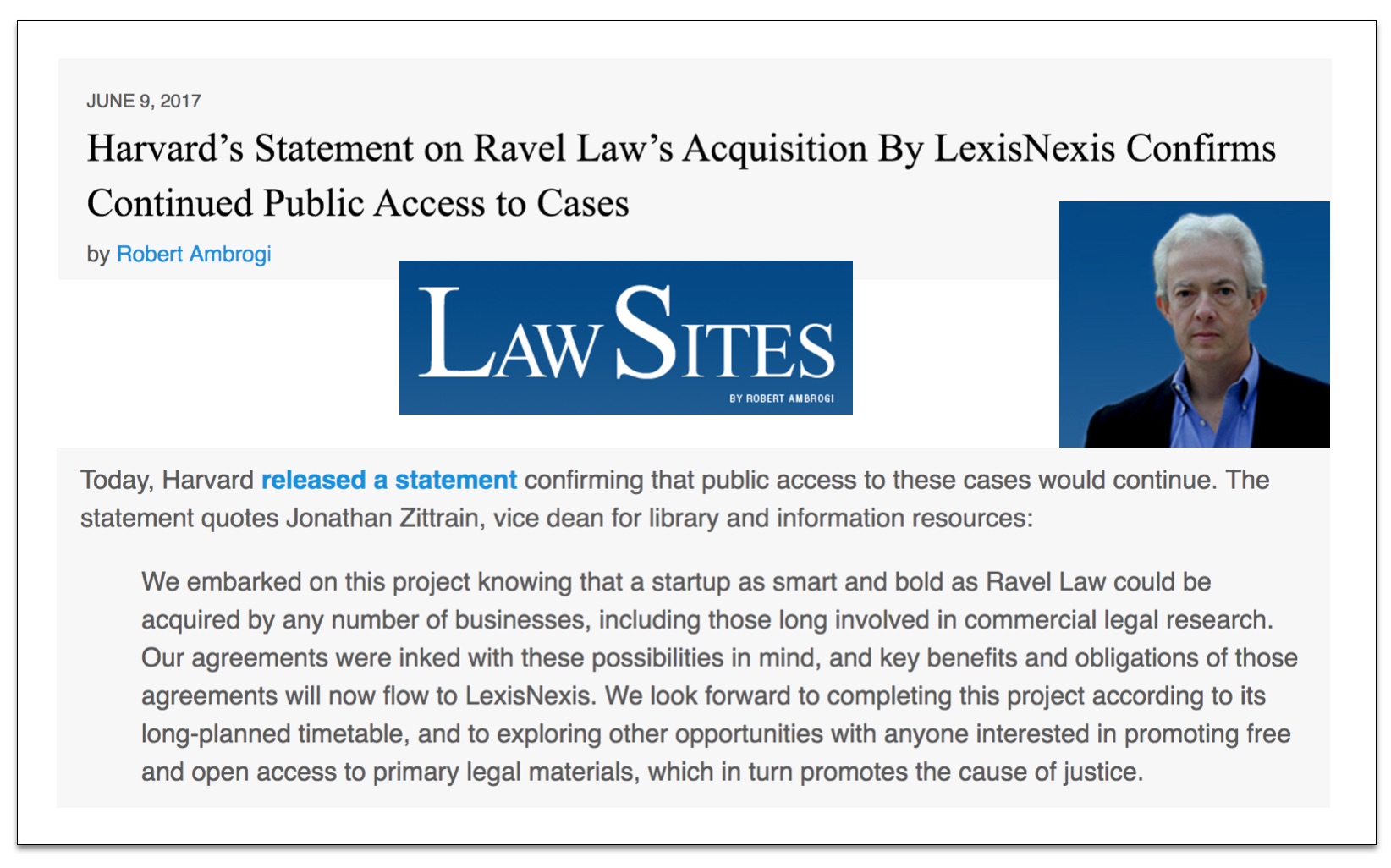 Coverage from Bob Ambrogi here. The Harvard Law statement notwithstanding – I doubt that either Lexis, Harvard Law or Ravel will provide yield the pathbreaking access at scale that was advertised in the original announcement. So I take this is a fairly negative development for this space – but feel free to prove me wrong …
Coverage from Bob Ambrogi here. The Harvard Law statement notwithstanding – I doubt that either Lexis, Harvard Law or Ravel will provide yield the pathbreaking access at scale that was advertised in the original announcement. So I take this is a fairly negative development for this space – but feel free to prove me wrong …

